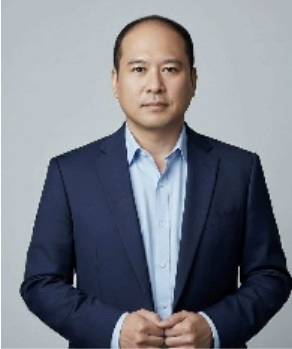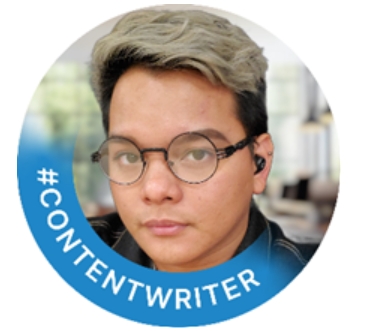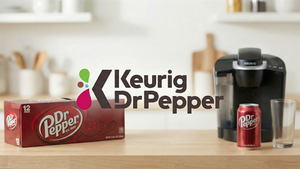Waukegan, Illinois - November 31, 2025 - Dr. James Bryan Riego, PhD, an international educator, researcher, and inclusion advocate, has achieved a remarkable dual contribution to global education and disability inclusion through two interconnected research projects that form the foundation of his professional legacy. His work on Adaptive Pedagogy and Learning Processes in Inclusive Physical Education and Developing a Transition Model for Persons with Disabilities Based on Service Industry Practices provides a comprehensive framework uniting education, rehabilitation, and employment for persons with disabilities (PWDs)
Together, these studies, one rooted in classroom learning and the other in workforce transition, redefine how inclusive education can prepare learners with disabilities for not only participation in school but also sustained independence and social contribution.
“Inclusive education is not simply about access; it is about empowerment,” Dr. Riego explains. “My master’s degree research focused on how children with special needs learn best through adaptive instruction, while my doctoral work expanded that foundation into how they transition successfully into real employment.”
From Classroom to Career: Two Milestones in a Unified Advocacy
Dr. Riego’s journey began with his Master of Arts in Education (Special Education) at Far Eastern University, Manila, where he completed his thesis titled Learning Capabilities of Children with Special Needs in Teaching Physical Activities: Input to Enhance Work Plan. His research introduced the concept of adaptive pedagogy, an instructional philosophy emphasizing flexibility, individualized learning, and differentiated assessment. The study demonstrated how physical education, when adapted to learner diversity, enhances motor coordination, confidence, and social interaction among children with special needs
This early work established the theoretical and pedagogical foundation for what would later evolve into a global inclusive teaching model, aligning with international frameworks such as UNESCO’s Education 2030 and the UN Convention on the Rights of Persons with Disabilities (CRPD). His adaptive pedagogy framework underscored the need for teacher responsiveness, universal design, and interprofessional collaboration principles.
Building on this foundation, Dr. Riego pursued his Doctor of Philosophy in Education (Special Education) at St. Joseph College of Quezon City, Philippines. His dissertation, Perspectives of Service Companies: Basis for Transition Model for Persons with Disabilities, led to the published study Developing a Transition Model for Persons with Disabilities Based on Service Industry Practices. This second research milestone shifted focus from learning to livelihood, translating classroom inclusion into workforce empowerment.
The doctoral work analyzed how service industries such as retail, hospitality, and logistics could model inclusive employment systems. The resulting Transition Model for Persons with Disabilities Based on Service Industry Practices outlined five interlinked phases: Assessment and Profiling, Skills Development and Simulation, Industry Partnership and Internship, Employment Placement and Support, and Evaluation and Sustainability. The model’s strength lies in its scalability and adaptability to diverse national contexts, from developing economies to industrialized societies.
Bridging Theory and Practice Across Continents
Now serving as a Low-Incidence Special Education Teacher at Waukegan High School – Washington Campus, Illinois, Dr. Riego applies his daily research in classrooms serving students with developmental and learning disabilities. His classes blend academic, vocational, and life-skill instruction, often including work-based simulations such as on-site job practice at Walmart. Students learn literacy, numeracy, hygiene, self-management, and interpersonal communication, demonstrating how adaptive pedagogy fosters independence and dignity.
His dual expertise in Special Education and Physical Education enables him to bridge cognitive and physical development, ensuring that instruction remains holistic and practical. “Every skill we teach must connect to life beyond the classroom,” he notes. “Education should always prepare students for the world that awaits them.”
Dr. Riego’s approach aligns with U.S. federal priorities under the Individuals with Disabilities Education Act (IDEA), emphasizing measurable post-secondary outcomes in employment and community participation. Through his transition-focused instruction, he mirrors the inclusive employment principles first introduced in his doctoral research, proving that inclusion can be systemic and personal.
Global Recognition and Educational Impact
Dr. Riego aims for both studies to gain recognition among educators, policymakers, and international inclusion advocates. The Adaptive Pedagogy framework from his master’s research has been cited as a model for integrating physical education, differentiated instruction, and individualized goal-setting in inclusive schools across the Philippines and the United States.It reinforces the view that inclusion must extend beyond placement, requiring reimagined teaching methods accommodating learner variability.
Meanwhile, the Transition Model for Persons with Disabilities from his doctoral dissertation is referenced as a practical roadmap for workforce inclusion demonstrating how service industries can serve as scalable partners for schools and governments in advancing equitable employment.
This dual legacy adaptive pedagogy for inclusive classrooms and transition modeling for employment inclusion forms an unbroken continuum from early education to adult independence. International experts have noted that such a comprehensive approach bridges two historically separate systems: education and labor.
“Dr. Riego’s work exemplifies the future of inclusive education,” one academic reviewer noted. “He moves beyond awareness to structure designing systems that ensure students with disabilities do not just learn, live, thrive, and contribute.”
Research Synthesis: Education as Empowerment
The combined findings of Dr. Riego’s master’s and doctoral studies affirm a powerful truth: inclusion is not achieved through placement alone, but through systems that evolve with the learner.
His research asserts that adaptive pedagogy provides the foundation for differentiated student-centered learning; transition modeling builds upon that foundation by ensuring learners are supported as they enter adulthood. In essence:
- The Adaptive Pedagogy study defines how students learn best.
- The Transition Model defines how they succeed afterward.
This continuum from instruction to independence redefines educational success for learners with disabilities. It also offers policymakers a replicable framework aligning with global commitments such as UN Sustainable Development Goals (SDGs 4, 8, and 10): quality education, decent work, and reduced inequalities.
Recognition and Professional Excellence
Dr. Riego’s professional journey spans more than 22 years of teaching in the Philippines and the United States, across institutions such as Far Eastern University, Trinity University of Asia, National University, and Waukegan High School. His classroom instruction blends evidence-based pedagogy, empathy, and innovation.
His contributions have been honored through the Tamaraw Teacher Award (2013) and multiple Teaching Excellence Awards from Far Eastern University, reflecting his enduring commitment to educational excellence.
He continues to advance professional development in adaptive and transition education, promoting collaboration between teachers, therapists, and industry partners. His ongoing advocacy supports establishing inclusive policies, resource accessibility, and teacher training aligned with UNESCO and U.S. Department of Education standards.
A Unified Vision for Inclusion
Through his combined body of work, Dr. Riego envisions an education system where inclusion is not a separate initiative but a core philosophy that spans the lifespan of every learner — from early childhood to adulthood.
His Adaptive Pedagogy framework provides teachers with the tools to nurture capabilities in the classroom, while his Transition Model gives institutions the structure to sustain those gains in real-world employment. Together, they constitute a global vision where schools, employers, and governments co-create inclusive futures.
“True inclusion,” Dr. Riego concludes, “happens when learning leads to living — when the skills we teach open doors to dignity, independence, and purpose.”
About Dr. James Bryan Riego

Dr. James Bryan Riego, PhD, is a licensed special and physical education professional with over twenty years of teaching experience in the Philippines and the United States. He holds a Doctor of Philosophy in Education (Special Education) from St. Joseph College of Quezon City and a Master of Arts in Education (Special Education) from Far Eastern University Manila.
He currently serves as a Low-Incidence Special Education Teacher at Waukegan High School, Illinois, where he continues integrating adaptive pedagogy and transition models into daily instruction. Dr. Riego’s research, Adaptive Pedagogy and Learning Processes in Inclusive Physical Education (based on his master’s thesis) and Developing a Transition Model for Persons with Disabilities Based on Service Industry Practices (based on his doctoral dissertation), form a comprehensive global framework for inclusion and equity in education.
Media Contact:
Dr. James Bryan Riego, PhD welcomes opportunities to collaborate with school districts, universities, inclusion advocates, professional associations, and education ministries committed to advancing equity and empowerment for persons with disabilities.
He offers consultancy, keynote speaking, and professional development workshops focused on adaptive pedagogy, inclusive instructional design, physical education inclusion, and transition-to-employment programs for learners with special needs.
Dr. Riego’s research — Adaptive Pedagogy and Learning Processes in Inclusive Physical Education (derived from his master’s thesis) and Developing a Transition Model for Persons with Disabilities Based on Service Industry Practices (derived from his doctoral dissertation) — continues to inform policy development and inclusive practice worldwide.
For inquiries related to partnerships, speaking engagements, or media features, please contact:
Jose T. Dizon
Public Relations Specialist, InnovatorsProfessionals

Jose develops media strategies, press releases, and editorial features that translate expert insights into clear, measurable results. He studied Bachelor of Arts – Languageat the University of Newcastle, Australia, and brings strong, audience-focused storytelling to web, print, and broadcast media.

Email: info@innovatorsprofessionals.com
Website: www.innovatorsprofessionals.com
Global Offices: United States | Australia | Asia Pacific
Media Contact
Company Name: Innovators Professionals
Contact Person: Jose T. Dizon
Email: Send Email
Country: United States
Website: http://www.innovatorsprofessionals.com/






